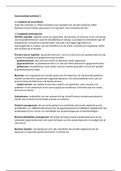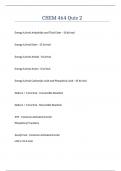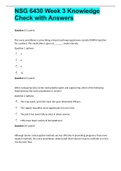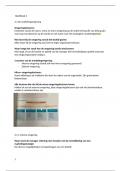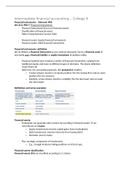Samenvatting
Summary Drugs List of MG: Infectious diseases and Oncology 2023
- Vak
- Instelling
This List of durgs provides you with the information you need to pass the subject of infectious diseases and oncology. It is usually combined with the summary of this subject for the best results. I wrote this summary down during the lectures. Because this summary helped me to pass this subject, I ...
[Meer zien]




